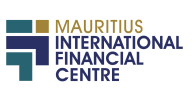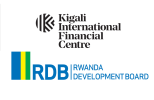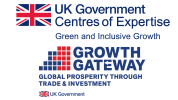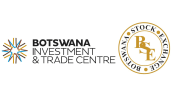Africa is a continent rich with natural resources, diverse cultures, and breathtaking landscapes. Yet, when people think of Africa, they often overlook the incredible wealth hidden beneath its surface. From vast mineral reserves to precious gems, Africa is a treasure trove waiting to be discovered. In this article, we will explore the untapped potential of Africa’s mineral wealth and the exciting opportunities it presents for exploration and mining.
The Rich Mineral Landscape of Africa
Africa is home to some of the world’s largest mineral reserves. The continent boasts a wide variety of minerals, including gold, diamonds, platinum, and copper. These minerals are not only valuable but also essential for various industries, from jewelry to electronics and construction.
Gold: Africa’s Shining Star
Gold has always been one of the most sought-after minerals, and Africa is no exception. Countries like South Africa, Ghana, and Mali are known for their significant gold deposits. South Africa, in particular, has some of the deepest and richest gold mines in the world. The gold mining industry in Africa has been a cornerstone of the continent’s economy, providing jobs and contributing to national GDPs.
Diamonds: A Girl’s Best Friend
Africa is also renowned for its diamond reserves. Botswana, Angola, and Namibia are among the leading diamond-producing countries. Botswana’s Jwaneng mine is one of the richest diamond mines globally, producing high-quality gems that are in demand worldwide. Diamonds from Africa are not only used in jewelry but also in industrial applications, making them a versatile and valuable resource.
Platinum: The White Gold
Platinum is another precious metal that Africa is rich in. South Africa holds the largest reserves of platinum in the world, accounting for about 75% of global production. Platinum is used in various industries, including automotive, jewelry, and electronics. Its unique properties make it a highly sought-after metal, contributing significantly to the economies of countries that produce it.
Copper: The Red Metal
Copper is an essential mineral used in electrical wiring, plumbing, and telecommunications. Africa has substantial copper reserves, with Zambia and the Democratic Republic of Congo being the leading producers. The copper mining industry in Africa is vital for the continent’s development, providing infrastructure and technological advancements.
The Potential for Exploration and Mining
The vast mineral wealth of Africa presents numerous opportunities for exploration and mining. With advancements in technology and increased global demand for minerals, the potential for discovering new mineral deposits is higher than ever.
Technological Advancements in Mining
Modern technology has revolutionized the mining industry. Advanced geological surveys, remote sensing, and data analysis have made it easier to identify potential mineral deposits. These technologies allow mining companies to explore previously inaccessible areas, uncovering new mineral reserves and expanding existing ones.
Sustainable Mining Practices
Sustainability is a crucial aspect of modern mining. African countries are increasingly adopting sustainable mining practices to minimize environmental impact and ensure the long-term viability of their mineral resources. Initiatives such as responsible mining certifications and community engagement programs are helping to promote ethical and sustainable mining practices across the continent.
The Economic Impact of Mining in Africa
Mining plays a significant role in the economies of many African countries. It provides employment, generates revenue, and contributes to infrastructure development. The mining sector has the potential to drive economic growth and development, improving the quality of life for millions of people.
Job Creation and Skills Development
The mining industry is a major employer in Africa. It provides jobs for millions of people, from unskilled laborers to highly skilled professionals. Mining companies also invest in skills development and training programs, helping to build a skilled workforce that can contribute to the industry’s growth and success.
Revenue Generation and Infrastructure Development
Mining generates substantial revenue for African countries through taxes, royalties, and export earnings. This revenue is often used to fund infrastructure projects, such as roads, schools, and hospitals, improving the quality of life for local communities. Additionally, mining companies often invest in local infrastructure, creating a positive impact on the surrounding areas.
Community Engagement and Social Responsibility
Mining companies in Africa are increasingly focusing on community engagement and social responsibility. They are working to build positive relationships with local communities, ensuring that the benefits of mining are shared equitably. This includes initiatives such as building schools, providing healthcare, and supporting local businesses.
Challenges and Opportunities in African Mining
While the potential for mining in Africa is vast, there are also challenges that need to be addressed. Political instability, regulatory issues, and environmental concerns can pose significant obstacles to the mining industry. However, these challenges also present opportunities for improvement and growth.
Political Stability and Regulatory Frameworks
Political stability is essential for the success of the mining industry. African countries are working to create stable and transparent regulatory frameworks that attract investment and promote sustainable mining practices. By addressing political and regulatory challenges, Africa can unlock its full mining potential and attract global investors.
Environmental Protection and Conservation
Environmental protection is a critical concern in the mining industry. African countries are increasingly implementing stringent environmental regulations to protect their natural resources and biodiversity. By adopting sustainable mining practices and investing in environmental conservation, the mining industry can minimize its impact on the environment and ensure the long-term sustainability of Africa’s mineral wealth.
Investment and Innovation
Investment and innovation are key drivers of growth in the mining industry. By attracting global investors and fostering a culture of innovation, African countries can unlock new opportunities for exploration and mining. This includes investing in research and development, adopting new technologies, and promoting collaboration between industry stakeholders.
Conclusion
Africa’s mineral wealth is a hidden gem waiting to be uncovered. With its vast reserves of gold, diamonds, platinum, and copper, the continent has the potential to become a global leader in the mining industry. By embracing technological advancements, sustainable practices, and community engagement, Africa can unlock its full mining potential and drive economic growth and development.
As we continue to explore the hidden gems of Africa, it is essential to balance economic growth with environmental protection and social responsibility. By doing so, we can ensure that the benefits of mining are shared equitably, creating a brighter future for the people of Africa and the global community.













































